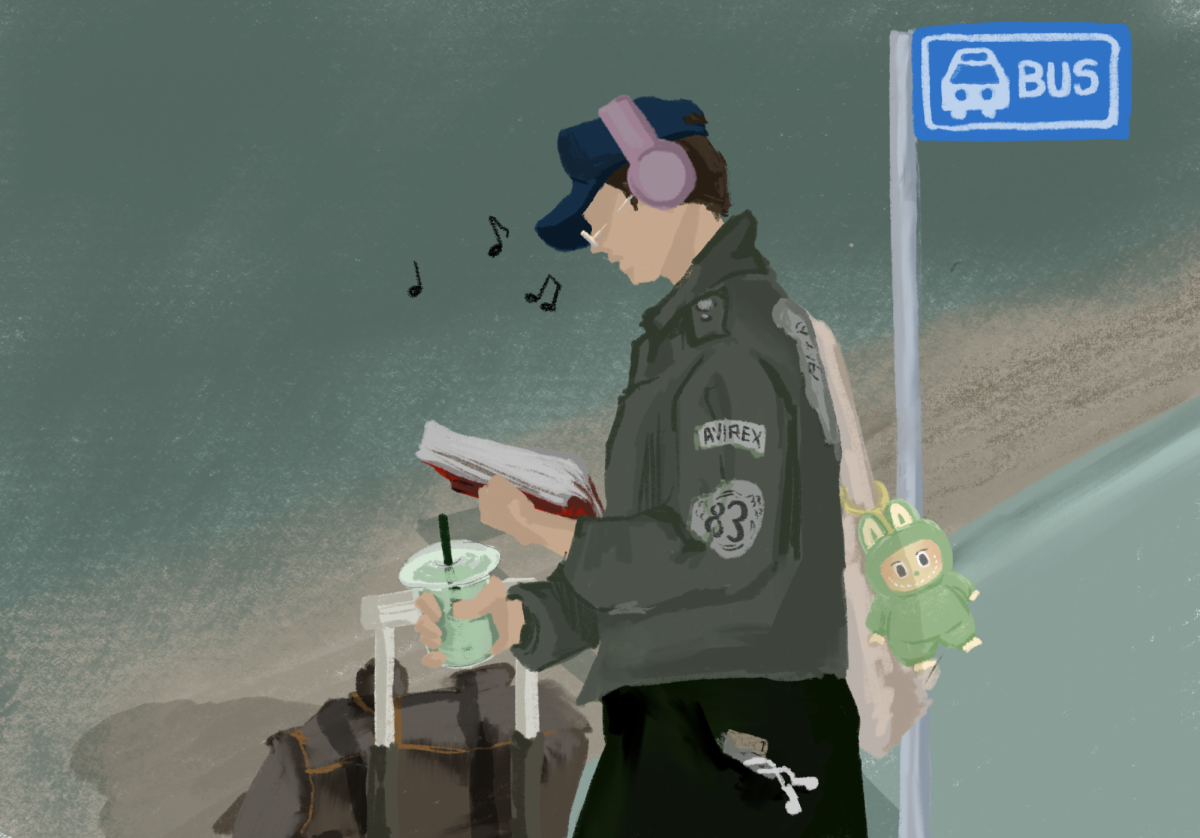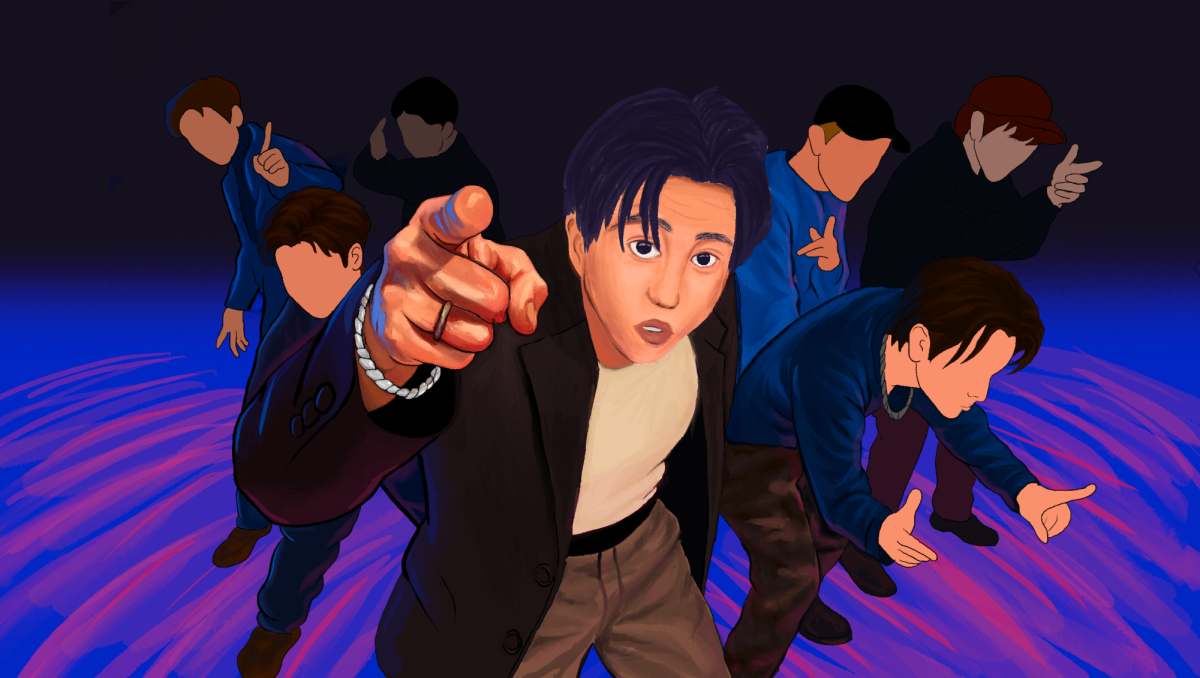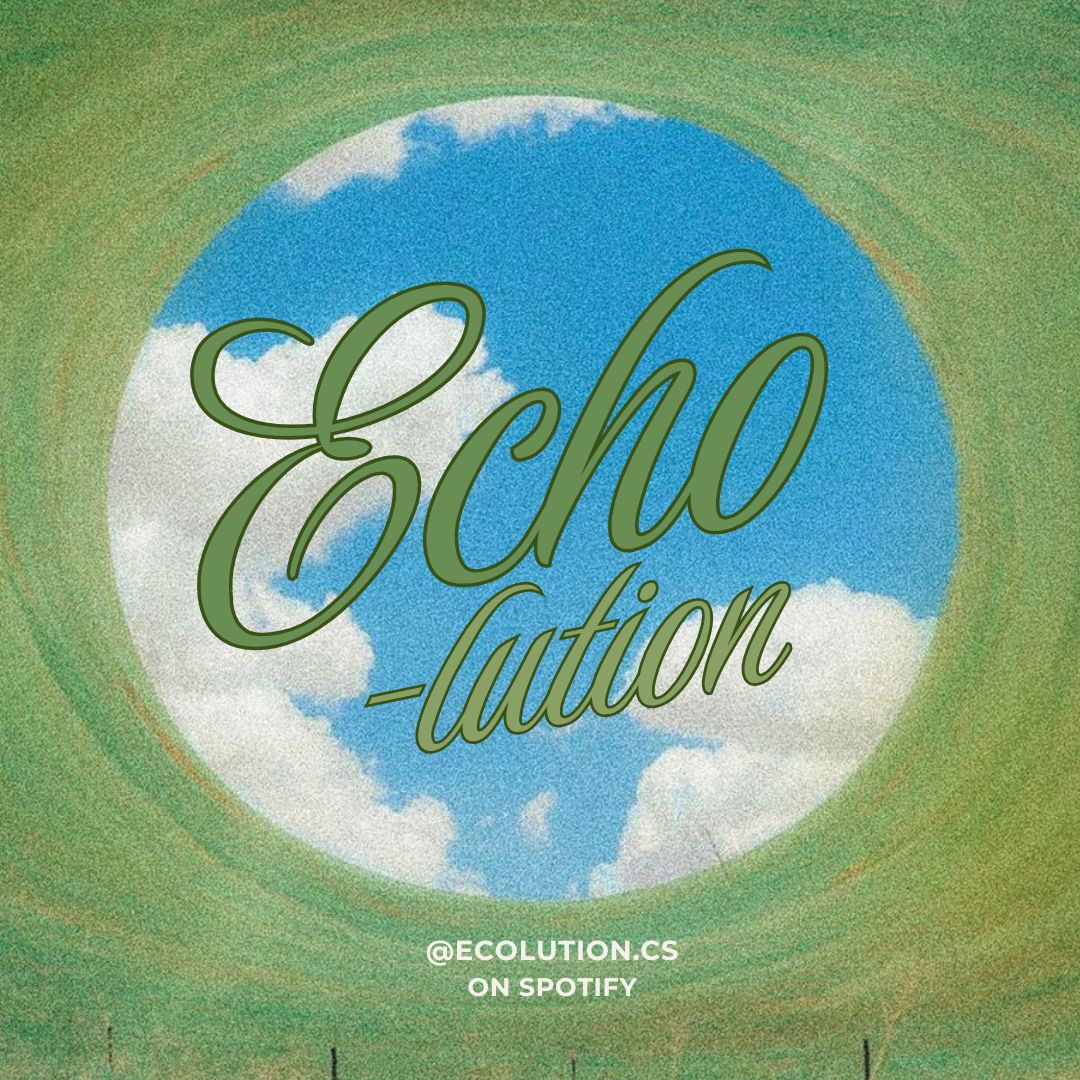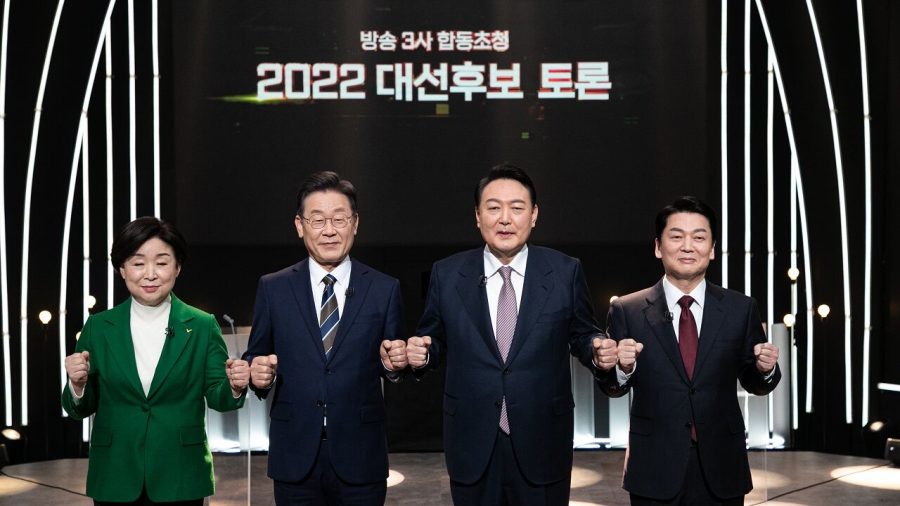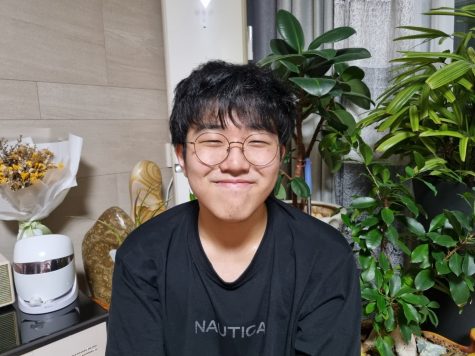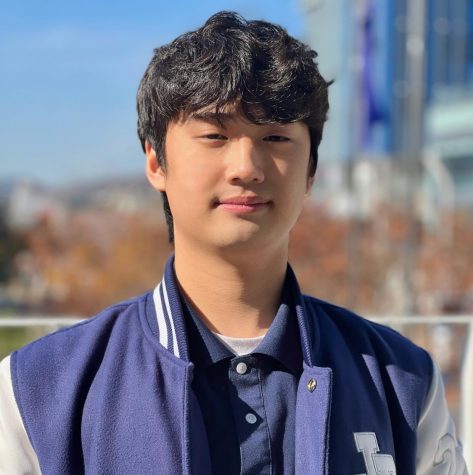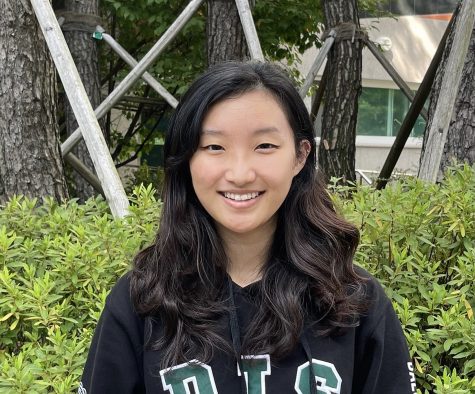Pondering the Presidential Debate
Controversy abounds as candidates clash; the presidential race accelerates towards the finish line
Four of the major candidates ready themselves for debate on February 3rd; discussing the future of Korea and their respective campaign promises. (Courtesy of khan.co.kr)
February 16, 2022
Disclaimer: The views and opinions expressed in this article are those of the author, and do not necessarily reflect the official policy or position of Daegu International School.
Domestic political tensions heighten, and excitement for the upcoming presidential election foreshadows its arrival on March 9th, 2022. Unfortunately, because Korea allows only citizens 18 or above to vote, those born after March 10th of 2004 have not been given the right to vote; at least, not yet. However, for those above voting age, the presidential debates leading up to ballot-casting have been a topic of heated interest.
Many predict that Jae-myung Lee of the Democratic Party or Seok-yeol Yoon of the People’s Power Party will be elected, while only a few predict that Cheol-soo Ahn of the People’s party or Sang-jeong Sim of the Justice Party will be elected, unfortunately for them and their supporters.
Korean politics have become much more mild in comparison to the abrasive black-and-white thought in times of past presidents in the 2000s and 2010s. However, “negative” politics – party members slinging mud rather than building up campaigns, a hyperfocus on condemning each other for their past wrongdoings – is still prominent in the scene.
There were two debates that took place during the Lunar New Year – in terms of content and exchanges, both were standard. The first parley was between independent candidate, Dong-hyun Kim and a Democratic candidate, Jae-myung Lee.
To be frank, the discourse was far from interesting. However, intrigue could be gleaned from the sight of an independent candidate and a contender from a major political party discussing the polarization. Kim was the one who first brought up and condemned such antagonistic opposition in public affairs; Lee agreed, even proceeding to criticize the happening. Though it’s true the divergence of public affairs has its negative influences, I found it odd that candidate Lee, who makes the most use out of political polarization himself, should not be the one criticizing it.
The second presidential debate, held on February 3rd, was between the most popular candidates: Jae-myung Lee, Seok-yeol Yoon, Cheol-soo Ahn, and Sang-jeong Sim. Contrary to the previous debate, this one was compelling—not only the debate itself, but also the interviews that took place afterwards were packed with controversial material.
For instance, a member of the DP (Democratic Party) criticized Seok-yeol Yoon from the People’s Power Party for what was deemed as an “excessive and repetitive” use of negative politics. However, members of DP also made use of such tactics themselves, bringing Yoon’s wife under fire as a hot topic of debate. Such attitudes have led the Democratic Party to be criticized for being hypocritical.
Additionally, Ahn has cemented himself as a unique figure that Korea has never seen before. Previously a computer programmer, a businessman, and a doctor, Ahn has proved himself to be a competitive candidate amidst the elephantine shadow of major party leaders Yoon and Lee. While other candidates were distracted, focused on criticizing each other rather than their policies, Ahn focused on the visions of the future and avoided negative politics. Whether or not his policies are possible or beneficial is another topic of debate; but so far, not many people hold negative grudges against Ahn himself.
Ahn’s angle is also reflected in his campaign strategies: while other candidates focused on advocating for their election promises (often criticized to be unrealistic), Ahn ran a website called “Market Ahn”, where he offered support to those running small businesses, who were suffering from the heavy hit the pandemic has brought upon them.
It’s also notable that Ahn was the one who brought up the topic of improving the national pension, a policy that was then agreed upon by all four candidates – the result was a heartwarming scene that impressed many.
Yoon’s performance in the debate was better than expected. Despite criticism against Yoon for his repetitive arguments by the members of DP, Lee wasn’t able to counter-argue the topics that Yoon brought up, leaving a wide window open in which Yoon and his supporters could attack Lee.
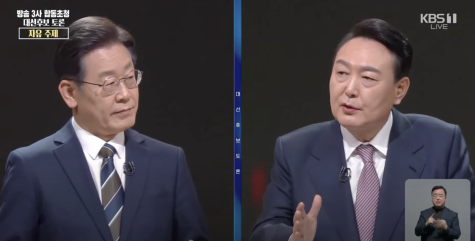
Additionally, one of the biggest criticisms of Yoon has been his tendency to be “out of touch” on current political issues. For instance, he was highlighted (and bashed) for not knowing keywords in domestic affairs such as “RE100” (an abbreviation for “Renewable Energy 100%”, a corporate sustainability campaign by The Climate Group). However, aside from him not understanding the terminology, one could argue that he did understand what the campaign was about once Lee unabbreviated the word. This has been controversial among Lee and Yoon’s supporters. Democratic backers argued that Yoon’s shortage of knowledge shows that he is unfit to become a president, while the People Power advocates argued that Yoon eventually understood what the campaign was about, hence the initial lack of understanding was a moot point.
Overall, I think Yoon had an impressive showing in the debate. However, this is partly because many people – including myself – simply had much lower expectations with Yoon compared to other candidates. Yoon’s general speech abilities have a reputation for being disappointing to say the least. Yoon’s mediocre performance in the debate was enough to pleasantly surprise many voters.
Ultimately, I found the debate to be decent. Of course, there are a number of presidential debates coming up as well, shortly before the election. If the patterns observed in the present are to continue on, each debate is bound to be a valuable tool in helping voters to decide who to cast their ballots for.













